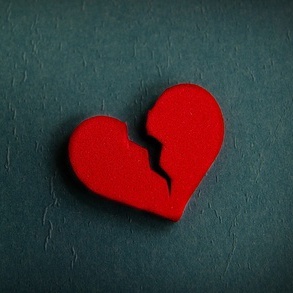Ground-breaking study finds possible new explanation for mysterious heart condition.
Today, December 28, marks 2 years since the passing of Debbie Reynolds - the day after the death of her daughter Carrie Fisher. The timeliness of her death in relation to the death of her daughter, prompted suggestion that the emotional trauma of losing her daughter may have contributed to Debbie Reynolds dying from a ‘broken heart.’
New research from the University of Aberdeen, published in Circulation, looks at broken heart syndrome, or Takotsubo cardiomyopathy, and identifies the body’s own immune response as a key player in the condition that affects hundreds of people in the UK every year.
This study also showed for the first time that signs of inflammation were still found 5 months later, albeit at a much lesser level. This explains better why some people who suffered an acute attack can remain unwell for a much longer time than previously believed.
Symptoms of broken heart syndrome include shortness of breath and chest pain and as such it is often mistaken for a heart attack. However, unlike in a heart attack, patients don't suffer from a blockage of the arteries that supply the heart with blood.
The cause of broken heart syndrome is not clearly understood but often is a result of intense emotional or physical trauma, which is thought to induce a strong response that affects the heart tissue.
In the study, funded by the British Heart Foundation, fifty-five patients with acute Takotsubo cardiomyopathy were recruited from five Scottish cardiac centres (Aberdeen, Dundee, Edinburgh, Glasgow and Inverness). Using sophisticated MRI techniques, researchers found that the inflammatory immune response in the hearts of those with broken heart syndrome was heightened compared to healthy volunteers.
Professor Dana Dawson, who led the research explains: “We hypothesized that inflammation is central to the pathophysiology and natural history of broken heart syndrome.
“We found that broken heart syndrome triggers a storm in the immune system which results in acute inflammation in the heart muscle. The heart muscle then spills inflammatory signals that are circulating throughout the body.
“We still don’t know if this is the cause of the broken heart syndrome itself or if it is a reactive response. But it offers a first platform to plan for the future possible therapeutic interventions in this condition in which no treatment exists.
“These findings uncover an important and previously unknown mechanism in the pathogenesis of Takotsubo cardiomyopathy, furthermore, whole body as well as myocardial inflammation may serve as a therapeutic target for these patients in the future”.
Professor Metin Avkiran, Associate Medical Director at the British Heart Foundation said:
"Takotsubo cardiomyopathy, is a serious stress-induced condition which affects mainly women and can cause long-lasting damage and scarring to the heart muscle. Surprisingly, there are still large gaps in our knowledge of its underlying biology. The discovery that it is accompanied by inflammation within the heart and in the rest of the body is an important step forward.
“We now need further research to understand if inflammation causes Takotsubo cardiomyopathy and determine if drugs that target inflammation could be the key to fixing broken hearts.”


